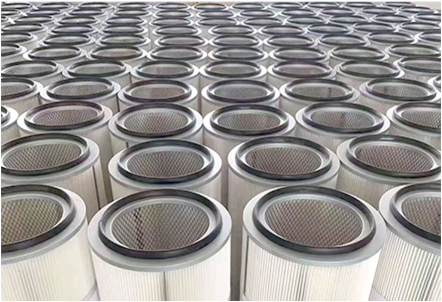 Tel:
+8615930870079
Tel:
+8615930870079
11月 . 06, 2024 12:57 Back to list
Optimizing Air Intake Filters for Enhanced Gas Turbine Performance and Efficiency
The Importance of Gas Turbine Air Intake Filters
Gas turbines have become a cornerstone of modern energy generation, powering everything from electric utilities to aircraft propulsion systems. As these complex machines operate, they depend on a constant influx of air to support the combustion of fuel, which in turn generates the necessary energy output. However, the quality of this intake air is critical—contaminants such as dust, dirt, pollen, and other particulate matter can significantly affect the performance and longevity of gas turbines. This is where air intake filters come into play.
The Role of Air Intake Filters
Air intake filters serve as the first line of defense against contaminants that can be drawn into the gas turbine system. They help ensure that only clean air enters the combustion chamber, playing a pivotal role in maintaining operational efficiency and protecting the intricate components within the turbine. By trapping large particles, filters prevent them from damaging sensitive engine components like the compressor blades and combustion chambers, which can lead to decreased performance and costly repairs.
When dirt and debris accumulate within a gas turbine, they can cause a phenomenon known as fouling. Fouling occurs when contaminants clump together and adhere to the turbine components, disrupting airflow and reducing the efficiency of the engine. This condition not only hampers performance but can also lead to increased emissions and fuel consumption, ultimately affecting the environmental footprint of the operation.
Types of Air Intake Filters
Gas turbine air intake filters come in various designs, each suited to specific operational conditions and environmental requirements
. The most common types include1. Synthetic Fiber Filters These filters utilize synthetic fibers engineered to capture small particles efficiently while allowing for high airflow. They often feature a multi-layered design, maximizing filtration performance while minimizing pressure drop.
2. Foam Filters Made from open-cell polyurethane foam, these filters excel in applications where large volumes of air must be filtered at a low cost. They are washable and reusable, making them cost-effective in certain applications.
gas turbine air intake filter

3. Bag Filters These are typically used in industrial settings where higher levels of filtration are required. They feature a series of fabric bags that collect dust and other particles, effectively ensuring clean air enters the turbine.
4. HEPA Filters High-Efficiency Particulate Air (HEPA) filters are designed to remove at least 99.97% of airborne particles that are 0.3 microns in diameter. Their high filtration efficiency makes them suitable for critical applications, particularly in environments with stringent air quality standards.
Maintenance and Replacement
Regular maintenance and timely replacement of air intake filters are essential to ensuring optimal turbine performance. A clogged or dirty filter can lead to an increase in pressure drop, making the turbine work harder to draw in air. This not only impacts efficiency but can also lead to overheating and component failure if left unaddressed.
Operators should establish a routine maintenance schedule, checking filter conditions at defined intervals based on operating conditions and environmental factors. Monitoring pressure differentials across the filter can also provide valuable insights into when a filter should be replaced.
Technological Advances
Recent advancements in filtration technology have led to the development of smarter and more efficient air intake filters. For example, some modern filters are equipped with sensors that monitor air quality and provide real-time data on filter performance. This allows operators to initiate maintenance actions based on actual needs rather than adhering to a fixed schedule, ultimately enhancing efficiency and reducing operational costs.
Conclusion
In conclusion, gas turbine air intake filters are critical components that significantly influence the performance and reliability of gas turbines. By ensuring that only clean air enters the combustion chamber, these filters help maintain efficient operation, reduce wear and tear on turbine components, and lower operational costs. As technology continues to evolve, the importance of sophisticated filtration solutions will only grow, making it imperative for operators to invest in high-quality filters and adhere to effective maintenance practices. Keeping the air intake systems clean and efficient is essential for maximizing the potential of gas turbine technology in the quest for sustainable energy solutions.
-
Nano Fiber Technology: Revolutionizing Cartridge Dust Collector FiltersNewsAug.06,2025
-
How Activated Carbon Air Cartridges Eliminate OdorsNewsAug.06,2025
-
Dust Filter Cartridge Handling Fine Particulate MatterNewsAug.06,2025
-
Cartridge Dust Collector Filter for Welding Fume ExtractionNewsAug.06,2025
-
Activated Carbon Filter Cartridge Effectiveness Against VOCsNewsAug.06,2025
-
Activated Carbon Air Filter Cartridge Benefits ExplainedNewsAug.06,2025

 Email:
Email:





